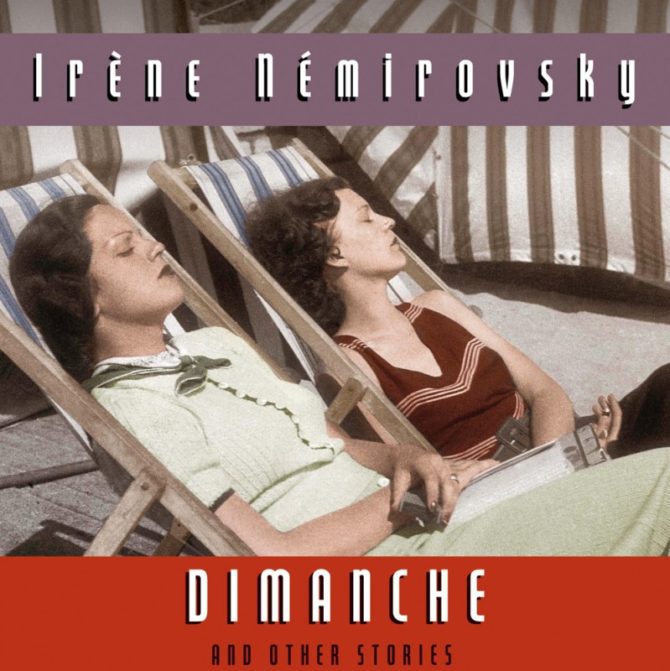Némirovsky’s Dimanche: Sundays and Sorrows

The story of Irène Némirovsky’s literary success is at once tragic and inspiring. Born in Kiev in 1903, she is best known for the unfinished novel Suite Française, which was not published until 2004, more than sixty years after she perished at Auschwitz at the age of 39. Two further works followed, the novella Fire in the Blood in 2007 and a collection of other short works in 2008. This spring brings another overdue gift to readers, a set of short stories written between 1933 and 1942, never before translated into English.
The collection, Dimanche and Other Stories, offers further proof of Némirovsky’s immense depth and talent, and poses the same question as Suite Française did: what other great works might she have written if she had lived longer?
The young Némirovsky fled to Paris with her parents during the Russian Revolution of 1917. After graduating from the Sorbonne, she became a celebrated author in France while still in her 20s, with the publication of David Golder in 1929. Despite praise for her novels and stories from a number of literary heavyweights, she and her family were denied French citizenship. In the summer of 1942 she and her husband were sent to Auschwitz; their two young daughters survived the war.
The story behind Suite Française has become something of a literary legend: it was only in the mid-1990s that Némirovsky’s daughter Denise discovered the novel, written in longhand, in one of her mother’s notebooks. Published in France in 2004, it was an immediate bestseller, as it was in the US when it was published in 2006. The novel, while exquisitely crafted, is perhaps most extraordinary for its perspective: a contemporary account of Nazi-occupied Paris, it is written with the kind of keen awareness usually gained only in hindsight.
Dimanche and Other Stories is a collection of quiet and brutally honest narratives written over the last decade of Némirovsky’s life. The title story, Dimanche, is a bittersweet snapshot of one family’s day, touching elegantly on jealousy, insecure young love, middle-aged infidelity, the sadness of aging and the terrible loneliness of an unhappy marriage. Némirovsky interweaves the thoughts of a mother and daughter on a perfect Sunday afternoon, as both women wonder how the other views the day. In Liens du Sang (Flesh and Blood), embittered siblings argue amongst themselves as they wait for their aged mother to die. In Fraternité, one of the more chilling stories in the collection, a wealthy French Jew happens upon a Ukrainian immigrant in a park who shares his surname, Rabinovitch. The Frenchman is frightened by their commonalities, and tries to get away. Némirovsky is merciless with her depiction of the man’s fear and self-hatred. “I’m much further away from that Jew than I am from an oriental peddler,” he thinks to himself. “I’m a different man, not just spiritually, but physically as well…only the soul matters!” The author empathizes with each one of her relentlessly human characters–understanding their fears and resentments, highlighting every bad deed and contemptuous thought.
Given the success of Suite Française, this gem of a collection is sure to garner much attention, and it certainly deserves it. Némirovsky left quite a legacy and, like Suite Française, Dimanche will no doubt be judged a modern classic before long.
Dimanche and Other Stories, by Irène Némirovsky, translated from the French by Bridget Patterson. Vintage Books, 2010.
Share to: Facebook Twitter LinkedIn Email
Leave a reply
Your email address will not be published. Required fields are marked *



